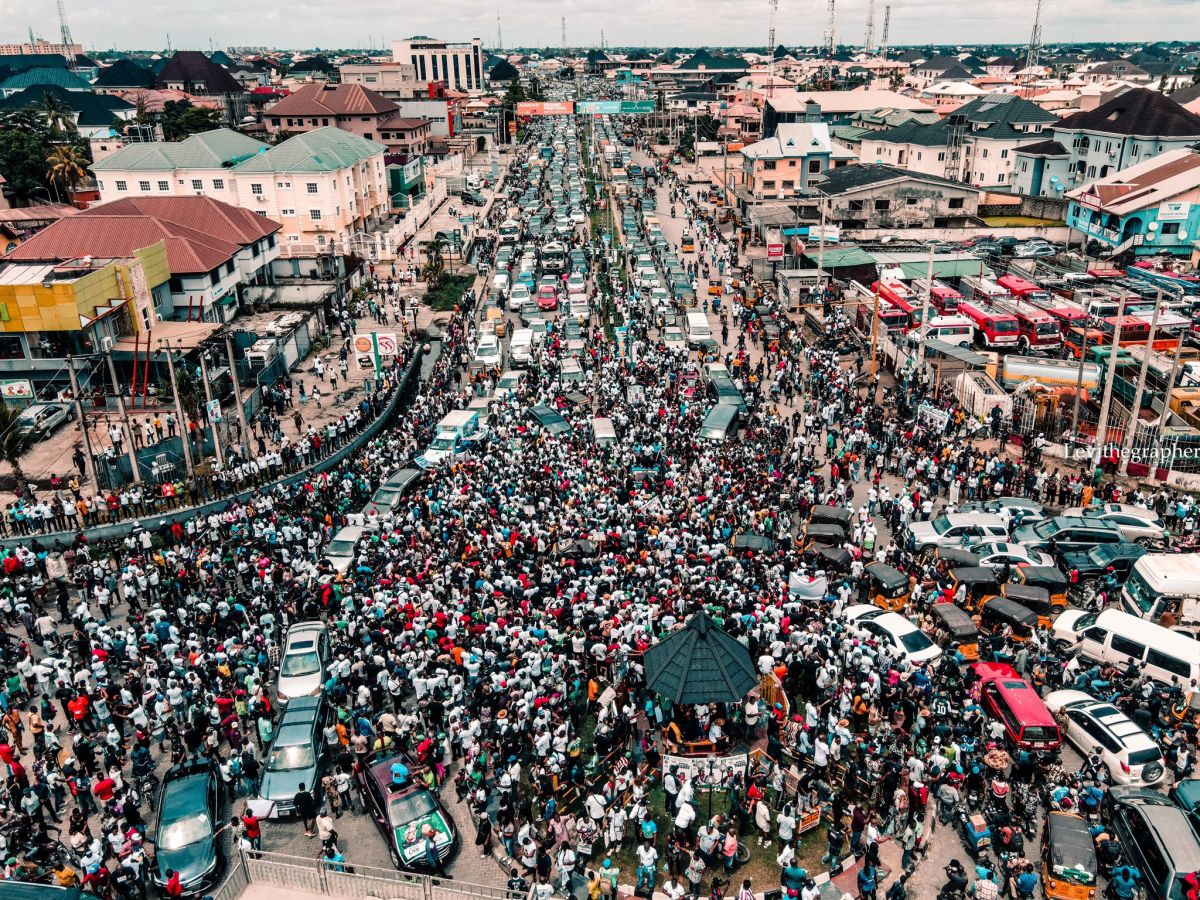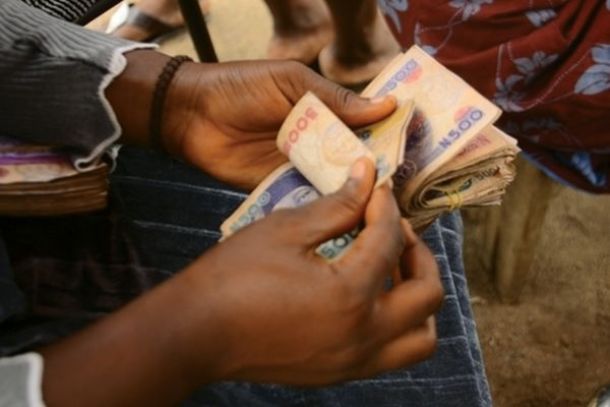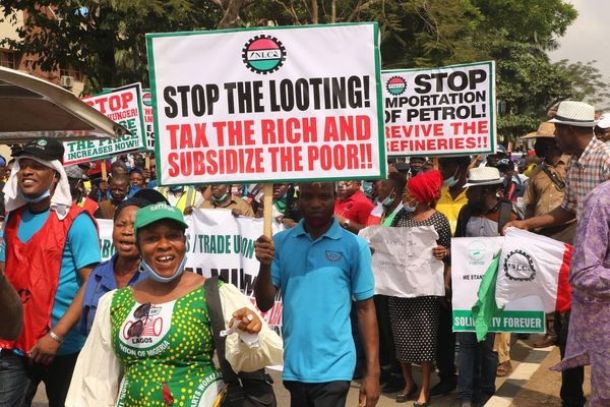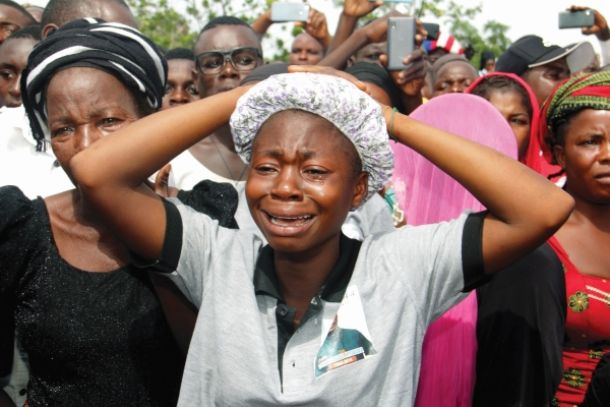Opinion: Why the war is not over for Nigeria's Obi-dient movement, despite poll setback
Peter Obi-supporter Princess Edima-Sharon Bassey looks on the bright side about the Labour election defeat.

An aerial view of an October 2022 rally by Peter Obi's Labour Party in Lagos, Nigeria.
Nigeria's so-called ‘Obi-dient movement’ has gone from being just ‘four people’ tweeting in a room to a movement of 6.1 million people.
Fired up by various factors, including economic instability, political corruption, police brutality and social injustice, the movement shocked not only Nigerians, but the entire world in the February 25 elections, when Peter Obi’s Labour Party (LP) won massive leads in 11 states (in four of Nigeria’s six geopolitical zones), as well as the Federal Capital Territory (FCT).
According to the results released by the Independent Electoral Commission (INEC), a total of 24 million votes were cast in the presidential election, with Bola Tinubu garnering 8.7 million votes to defeat Atiku Abubakar of the Peoples Democratic Party (PDP) and Peter Obi of LP, who garnered 6.9 and 6.1 million votes respectively.
The budding Labour Party also snatched six seats in the 10th National Assembly, 34 seats in the lower chamber, and one gubernatorial seat.
The loss of the presidential election to Tinubu felt like a fatal blow to some members of Obi-dient movement.
Many young Labour supporters have become disillusioned with the political system and feel that their voices are not being heard, while the more optimistic are taking solace in the fact that this election was the first time in the history of Nigerian politics that a third force has been strong enough to ruffle the nonchalance of the political monarchs of Nigeria.
This third force has slowly but steadily risen from the trenches of unpopularity to play politics in the big league.
Interestingly, the citizens are not the only ones aggrieved by the outcome of the elections. The former vice president Atiku Abubakar of the main opposition PDP and Labour's Peter Obi both rejected the outcome of the presidential election and called for its total cancellation.
They cited the INEC’s disregard of several complaints of alleged official misconduct, as well as thuggery and ballot-box snatching. The aggrieved parties have gone to the courts for a judicial review of the election results.
The aftermath of the 2023 Nigerian election have highlighted the fact that the youth of Nigeria are willing and ready to participate in the democratic process, even in the face of great challenges.
Young Nigerians are willing to do more than just vote; they are willing to take action and fight for change.
They were strengthened in this resolve for good governance by the conduct of Obi, who, in a series of tweets on March 3, stated that there was no looking back on the movement’s goal of taking back Nigeria.
The former governor of Anambra State added: ‘In the life of every nation, there is a turning point. For Nigeria, that time is now; a time to save Nigeria, save our democracy and give the Nigerian youths hope.’
As citizens come out in their thousands to show their determination to eradicate bad governance and demand accountability from the INEC, Nigerians have made it clear that they will no longer be taken for granted.
The Obi-dient movement has altered the political discourse in Nigeria forever. The phenomenal upsurge of the Labour Party, and the blatant disregard of the safety and rights of the electorate by the government and INEC, are all clear indicators of the country’s absence of good governance.
Nigeria’s time is now.
Nigeria 2023 Elections: Two candidates versus a movement
The 2023 elections to elect a new leader in Nigeria will be a race between the establishment and a challenger movement, write Moffat Ekoriko and Peter ClaverFor Nigeria’s ruling All progressives Congress (APC), it was a long night and one of dram...
OPINION: Nigeria needs action to grow
The Nigerian economy is not actually growing unless GDP outstrips population growth, says economist Muda Yusuf.
Over the past six decades, the Nigerian economy has transformed significantly from a basically agrarian economy to one driven largel...
Nigerians hit by lockdown-induced cost of living crisis
As Nigerians prepare to vote in gubernatorial elections over the next 12 months, Emeka Chigbu reports how the economic situation couldn’t be more fragile in Africa’s most-populous nation.
Nigeria's longstanding dependence on petrole...
Nigeria sectarianism fears
As communities turn to militias for protection from rampaging herdsmen, Rosemary Udoh reports on the conflict tearing Nigeria apart – and asks what really lit the country ablaze.
Sunday April 16, 2019, will forever be remembered by the people...







